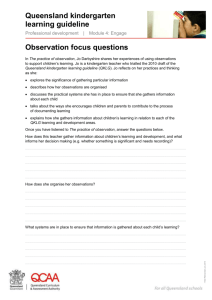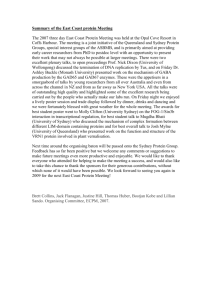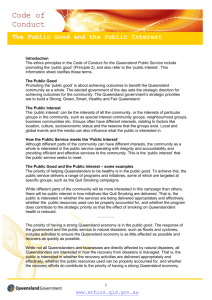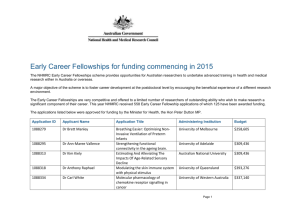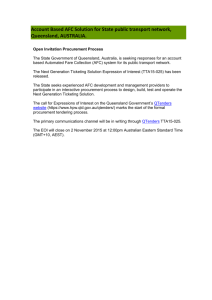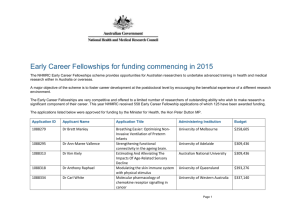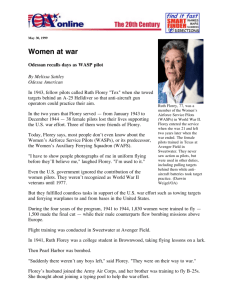Agenda_Web - University of Canberra
advertisement
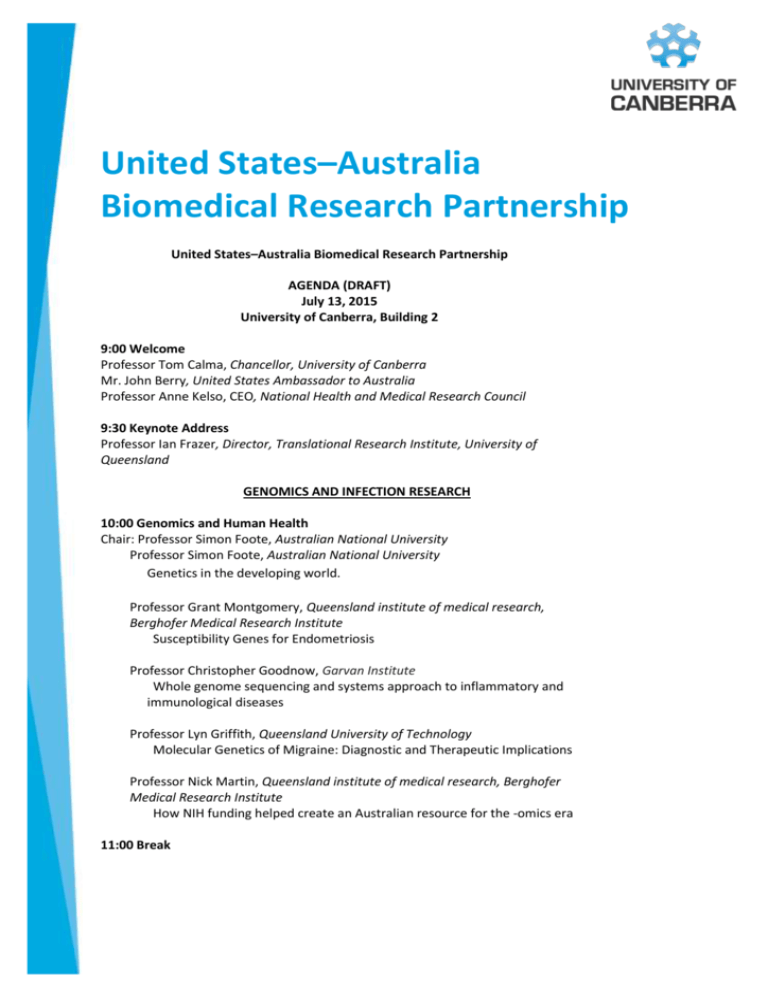
United States–Australia Biomedical Research Partnership United States–Australia Biomedical Research Partnership AGENDA (DRAFT) July 13, 2015 University of Canberra, Building 2 9:00 Welcome Professor Tom Calma, Chancellor, University of Canberra Mr. John Berry, United States Ambassador to Australia Professor Anne Kelso, CEO, National Health and Medical Research Council 9:30 Keynote Address Professor Ian Frazer, Director, Translational Research Institute, University of Queensland GENOMICS AND INFECTION RESEARCH 10:00 Genomics and Human Health Chair: Professor Simon Foote, Australian National University Professor Simon Foote, Australian National University Genetics in the developing world. Professor Grant Montgomery, Queensland institute of medical research, Berghofer Medical Research Institute Susceptibility Genes for Endometriosis Professor Christopher Goodnow, Garvan Institute Whole genome sequencing and systems approach to inflammatory and immunological diseases Professor Lyn Griffith, Queensland University of Technology Molecular Genetics of Migraine: Diagnostic and Therapeutic Implications Professor Nick Martin, Queensland institute of medical research, Berghofer Medical Research Institute How NIH funding helped create an Australian resource for the -omics era 11:00 Break 11:15 Infection and Immunity Chair: Professor Sharon Lewin, Peter Doherty Institute for Infection and Immunity, University of Melbourne Professor Gilda Tachedjian, Burnet Institute New inhibitors of HIV-1 reverse transcriptase Professor Leann Tilley, University of Melbourne Molecular Basis of Resistance to Antimalarial Drugs Professor David Tscharke, Australian National University Relating proteomes, epitope abundance and immune responses to virus infection Professor Graham Lieschke, Monash University Leukocyte biology in development and disease Professor Michael Foley, La Trobe University, U.S.-Australia Malaria Vaccine Initiative 12:30 Reception I. CONCURRENT SESSIONS MOLECULAR AND CELLULAR RESEARCH 1:15 Cellular Signaling in Health and Disease Chair: Professor Jonathan Cebon, Olivia Newton-John Cancer Research Institute Professor John Mariadason, Olivia Newton-John Cancer Research Institute Role of HDAC3 in regulating metabolism and cancer in the gastrointestinal tract Professor Neil Hunter, University of Sydney A humble brain in a box: how the neurosensory apparatus in decayed teeth reveals remarkable insight into the central nervous system of man Professor David Huang, Walter and Eliza Hall Institute of Medical Research Small molecules to inhibit BAX/BAK-mediated apoptosis Professor Johnston Mcavoy, University of Sydney Growth factor regulation of lens cell behavior in health and disease 2:30 Break 2:45 Molecular Pathogenicity Chair: Professor Jillian Kril, University of Sydney Professor Jane Visvader, Walter and Eliza Hall Institute of Medical Research Breast stem cells- tracking them in vivo and understanding their role in cancer Professor Geoffrey Farrell, Australian National University Non-alcoholic steatohepatitis Professor Nickolas Haass, University of Queensland Melanoma heterogeneity. Professor Roger Reddel, Children's Medical Research Institute Control of telomere length: a balancing act Professor Ian Hickie, University of Sydney Family and genetic studies of major mood disorders 4:00 Break II. CLINICAL AND APPLIED RESEARCH 1:15 Medical Diagnostics, Treatments and Drug Discovery Chair Professor Matt Trau, University of Queensland Professor Ranjeny Thomas, University of Queensland Dendritic cell targeting for antigen-specific therapy in early and prerheumatoid arthritis Professor Robyn Woods, Monash University The ASPREE study of aspirin and healthy aging Professor Geoffrey Mitchell, University of Queensland Using individualised randomised trials to improve health outcomes and reduce costs Professor Clive May, Florey Institute of Neuroscience and Mental Health Cardiac sympathetic drive mechanism in heart failure Professor Greg Dore, Kirby Institute, University of New South Wales Hepatitis C treatment as prevention: challenges and opportunities 2:30 Break 2:45 Translational Biomedical Research Chair: Professor Jerry Adams, Walter and Eliza Hall Institute of Medical Research Professor Jerry Adams, Walter and Eliza Hall Institute of Medical Research How the Bcl-2 protein family controls cell suicide Professor Andrew Scott, Olivia Newton-John Cancer Research Institute Defining Tumour Specific EGFR Antibodies for Treatment of Advanced Cancers. Professor Peter Gray University of Queensland Development of a monoclonal antibody for prevention and potential treatment of Hendra virus infection Dr. Wayne Fairbrother, Genentech Targeting Bcl-2-family proteins: A US-Australia Research Collaboration Professor Matt Trau, University of Queensland Making NanoMedicine Personal: Translating Comprehensive Genome/Epigenome Information & Point of Care Diagnostics into the Clinic Professor Nikolai Petrovsky, Flinders University An Australian-US partnership developing vaccines against emerging pathogens 4:00 Break III. PUBLIC AND MENTAL HEALTH 1:15 Public Health and Global Health Chair: Professor Jian Li, Monash University Professor Jian Li, Monash University Targeting the urgent global medical challenge due to antibiotic resistance: A US-Australian collaborative program Professor Fiona Russel, University of Melbourne Supporting New Vaccine Introduction in the Asia-Pacific Region Professor Mike Hubbard, University of Melbourne Chalky teeth: A silent dental global epidemic Professor Sab Ventura, Monash University Non-hormonal male contraception via pharmacological blockade of sperm transport 2:30 Break 2:45 Neuroscience and Mental Health Chair: Professor Geoffrey Donnan, Florey Institute of Neuroscience and Mental Health Professor Geoffrey Donnan, Florey Institute of Neuroscience and Mental Health Clinical Studies and stroke; the US Australia links. Dr. Sam John, Florey Institute of Neuroscience and Mental Health Endovascular neural recording technology Professor Patrick Kwan, University of Melbourne Genetic screening for prevention of severe cutaneous reactions to antiepileptic drugs: from discovery to practice Professor Bernard Balleine, University of Sydney The neural basis of decision-making Professor Stan Skafidas, University of Melbourne Recent advances in Molecular Point of Care Devices for Neurological and Psychiatric Applications 4:00 Break PLENARY SESSION 4:15 Panel Discussion: Challenges and Opportunities for U.S. –Australia Biomedical Research Chair: Mr. Tony Kingdon, General Manager and Head, Planning and Operations Group and Research Group, NHMRC


